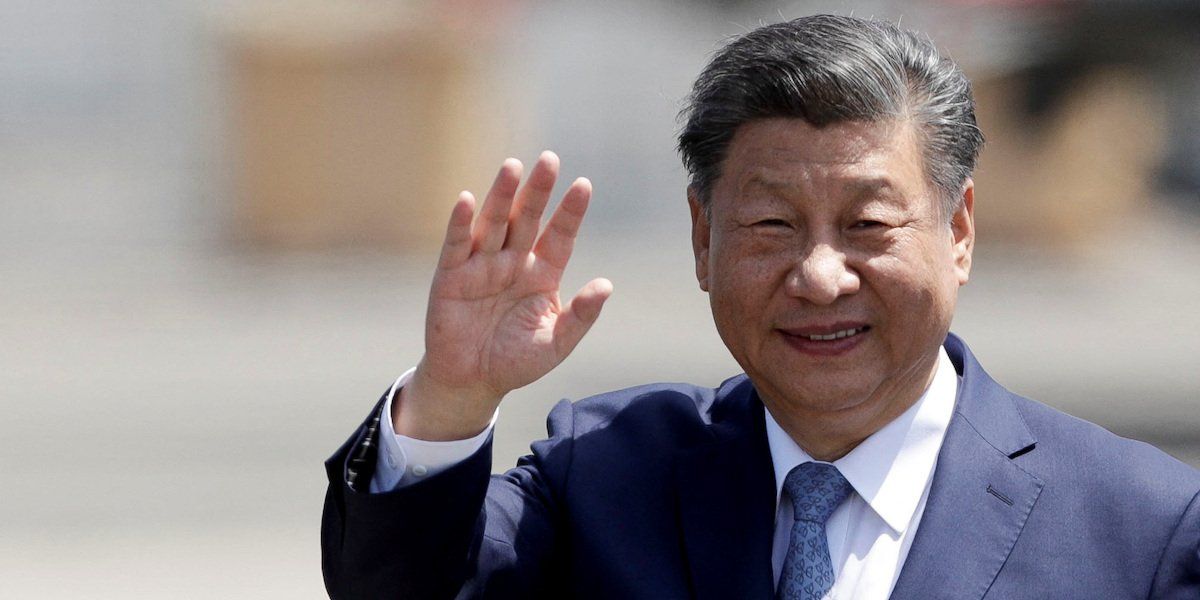November 14, 2024
At the Asia-Pacific Economic Cooperation forum in Lima, Peru, this week, the specter of Donald Trump’s proposed tariffs is looming large over the proceedings.
Trump, who believes import duties are a way to gain leverage over adversaries while spurring domestic manufacturing, has threatened tariffs as high as 60% against China and universal 10%-20% tariffs for other US trade partners. He has also appointed a series of China hawks to his Cabinet.
China is preparing aggressive countermeasures, including using an “anti-foreign sanctions law,” which allows Beijing to match measures taken by other countries and to place US companies on an “unreliable entity list” for foreign companies that have national interests. It is also expected to implement export controls on resources like rare earth minerals and lithium, which are critical components in modern technologies.
Joe Biden will attend the summit on Friday and Saturday, and his message of America’s desire to cooperate on trade, climate change, and poverty is likely to fall on deaf ears as members prepare for Trump 2.o. On Saturday, Biden — who kept most of Trump’s China tariffs in place and is expected to further tighten semiconductor restrictions before leaving office — will meet with President Xi Jinping. But with just a few weeks left of his presidency, expectations are low that much will come from the meeting.
“The reality is that Biden and Xi made meaningful progress in at least stabilizing the decline in the bilateral relationship, if not improving it,” says Eurasia Group’s China director, Lauren Gloudeman. “But the biggest initial risk once Trump takes office is that all of those channels that were restored for bilateral communication under Biden will most likely be frozen as soon as the new administration comes in.”
We will also be watching to see if Biden meets with Taiwan’s representative on the sidelines. Taiwan’s fate is uncertain under Trump, and Gloudeman says it’s unclear “whether he’s going to seek to pressure Taiwan to increase its own defense spending, or whether he sees Taiwan as almost a bargaining chip in some kind of broader negotiations with China.”
More For You
Ian Bremmer sits down with former US Ambassador to NATO Ivo Daalder to unpack a historic shift in the transatlantic alliance: Europe is preparing to defend itself without its American safety net.
Most Popular
Think you know what's going on around the world? Here's your chance to prove it.
U.S President Donald Trump, U.S. Vice President JD Vance, and U.S. Secretary of State Marco Rubio pose for a family photo with other representatives participating in the inaugural Board of Peace meeting, at the U.S. Institute of Peace in Washington, D.C., U.S., February 19, 2026.
REUTERS/Kevin Lamarque
Argentina, Armenia, Belarus, Egypt, Indonesia, Jordan, Pakistan, Paraguay, Vietnam – to name only a few.
A poster featuring Andrew Mountbatten-Windsor, formerly known as Prince Andrew, is installed on a sign leading to the parking area of the Sandringham Estate in Wolferton, as pressure builds on him to give evidence after the U.S. Justice Department released more records tied to the late financier and convicted sex offender Jeffrey Epstein, in Norfolk, Britain, February 5, 2026.
REUTERS/Isabel Infantes
British police arrested former Prince Andrew Mountbatten-Windsor today over allegations that in 2010, when he was a UK trade envoy, he shared confidential government documents with convicted sex offender Jeffrey Epstein.
© 2025 GZERO Media. All Rights Reserved | A Eurasia Group media company.
